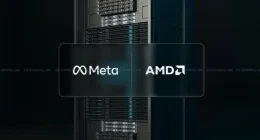The overall worldwide video gaming market was actually worth a staggering $91 billion this year, according to the new Superdata Research report. Mobile gaming, which was powered by massive hits like Pokemon Go and Clash Royale, led the path with a total estimated market share value of $41 billion, but the PC seems to have acquitted itself really well, pulling in just shy of $36 billion over the year, “driven largely by free-to-play online titles and downloadable games.”
Continuing about the same, the report states:
Gaming is growing at tremendous rates and incorporating new media and platforms, expanding its reach, going far beyond the traditional ‘gamer’ dynamic, the games and playable media audience is now one of the most valuable and engaged demographics, and brand owners are paying attention.
Premium game profits on the PC hit $5.4 billion for 2016, which is not too far off from the $6.6 billion which has been earned across all consoles. Overwatch took the crown here, earning $586 million, followed by CS:GO, Guild Wars 2, Minecraft, and Fallout 4. But the real dough remains with the free-to-play titles. League of Legends once again tops that chart at $1.7 billion, followed by Dungeon Fighter Challenge, Crossfire, World of Tanks, and Dota 2, which brought in a relatively paltry $260 million.
Noting just how difficult it continues to be for fresh MOBAs to make a meaningful impact on the genre, the report concludes:
After launching more than seven years ago, League of Legends is still on the top earning Riot $150 million per month. Dota 2 comes in second at $23.4 million per month this year, show fans’ hesitation to switch to another MOBA, the modest success of mid-tier titles like Heroes of the Storm, Smite, Heroes of Newerth, and Paragon is still dwarfed by the top two, a persistent trend over the past several years.
All in all, these reports seem to be painting a healthy picture for the PC gaming scene for the years to come. While also predicting a slight drop in premium PC revenues from 5.4 Billion to 5.3 Billion in 2017 and a returned increase in 2018.
The Tech Portal is published by Blue Box Media Private Limited. Our investors have no influence over our reporting. Read our full Ownership and Funding Disclosure →






